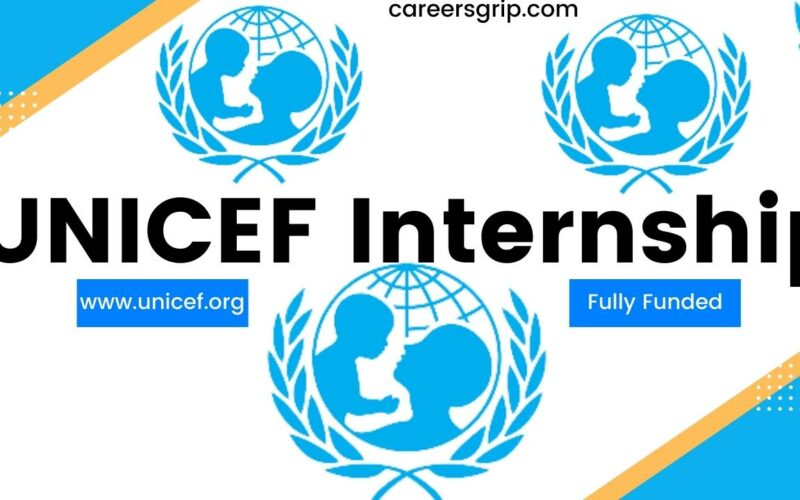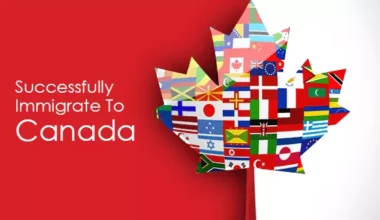Moving abroad with UNICEF Internships offers a once-in-a-lifetime opportunity to get relevant foreign work experience. You also have the opportunity of making a positive difference in the lives of children worldwide. Internships are available at UNICEF in various countries, allowing individuals to immerse themselves in other cultures while contributing to the organization’s purpose of promoting child rights and well-being.
This training session lays the groundwork for a satisfying career in the humanitarian field. On the other hand, moving abroad for an internship necessitates meticulous planning and preparation. This guide will provide insights and recommendations on effectively managing relocating overseas with UNICEF internships, from obtaining the necessary documentation to understanding the local culture.
UNICEF internship opportunities:
- UNICEF internship opportunities:
- Eligibility criteria for UNICEF internships
- How to apply for UNICEF internships
- Final Thoughts
Before delving into how to move abroad with UNICEF internships, let’s discuss some of the internship opportunities. UNICEF provides a wide range of internship opportunities in various fields of expertise and regions worldwide. The following are some of the UNICEF internship opportunities:
1. Product/program manager: Interns can assist program managers with the development, execution, and monitoring of initiatives aimed at increasing child health, education, protection, and other aspects of child well-being.
2. Research & data analysis internships: Internships in research and data analysis allow you to contribute to evidence-based decision-making processes. Interns can help with data collection, analysis, and interpretation to inform policies and initiatives.
3. Communication internship: Interns may gain experience in media production, social media management, content creation, narrative, and public relations through communications and media internships. Using various communication methods, they may help UNICEF promote awareness and advocate for children’s rights.
4. Policy and advocacy: Interns interested in policy and advocacy can help UNICEF impact policy decisions locally, nationally, and worldwide. They can do this by researching and analyzing policy issues, developing advocacy materials, and supporting UNICEF’s efforts to influence policy decisions locally, nationally, and internationally.
5. Field operations and disaster: Internships in field operations and disaster response provide hands-on experience working directly with communities, supporting emergency response activities, and contributing to humanitarian projects in challenging environments.
6. Gender equality and child protection: Interns can work on projects relating to gender equality, child protection, and eliminating violence against children. They can help fund activities promoting the rights and well-being of all children, especially those who are vulnerable or marginalized.
These are just a few of the internship options offered by UNICEF. Other services the organization provides include education, water and sanitation, supply chain management, finance, and others.
Eligibility criteria for UNICEF internships
UNICEF scholarships provide educational opportunities to students who exhibit academic distinction, leadership potential, and a desire to make a positive difference in the lives of children. While particular eligibility criteria for individual UNICEF scholarship programs may vary, the following are some general aspects considered:
1. Academic achievement: Applicants must have an excellent academic background, including high grades or equivalent academic achievements. Academic transcripts or certificates may be required.
2. Financial need: UNICEF scholarships frequently favor candidates from low-income families or those who want financial aid to further their studies. It may be necessary to provide proof of financial need with supporting paperwork.
3. Leadership and engagement: Many UNICEF scholarships favor applicants with leadership abilities, community involvement, and a dedication to social problems. Extracurricular hobbies, volunteering, and group leadership roles can all be beneficial.
4. Adherence to UNICEF’s mission: Applicants should support UNICEF’s mission of promoting the rights, well-being, and development of children. It is critical to demonstrate a genuine interest in bettering the lives of children through their academics and future careers.
5. Specific program requirements: Additional eligibility criteria suited to each scholarship program’s specific objectives and intended audience may apply. These requirements may include specific areas of study, geographical location, age limits, or other criteria.
How to apply for UNICEF internships
Applying for a UNICEF internship takes thorough planning and attention to detail. The following is a step-by-step guide to applying for UNICEF internships:
1. Research the internship programs: Explore available internship possibilities by visiting the UNICEF website or their internship portal. Read each internship’s job description, prerequisites, and duration to discover one that matches your interests and skills.
2. Examine eligibility: Examine the eligibility requirements for the internship you’re interested in. Ensure you meet the educational criteria, language proficiency, and any other qualifications listed in the job description.
3. Prepare paperwork: Gather all of the paperwork required for your application. A well-written résumé, a cover letter outlining your interest in the internship, academic transcripts, and any additional supporting documents such as reference letters or diplomas are often required.
4. Fill out the application form: Complete the online application form on the UNICEF internship portal. Provide precise and detailed information, making sure that all required fields are filled out.
Other steps include:
1. Apply: Include your résumé, cover letter, academic transcripts, and any other papers requested in the application form. Before submitting your application, double-check that all of the information is correct.
After completing your application, wait patiently for a response from UNICEF. Expect some delays during the choosing procedure. You may be contacted for additional examinations or interviews if you are selected.
2. . Acceptance and Preparation: If accepted for the internship, carefully read and follow the instructions provided by UNICEF. Signing an internship agreement, collecting relevant travel documents, finding accommodation, and preparing for your internship experience are all things you might undertake.
Keep track of application deadlines, personalize your documents to highlight relevant experiences, and show a genuine interest in UNICEF’s goals Because competition for UNICEF internships can be tough, it’s critical to prove your talents, passion, and commitment to making a positive difference in the lives of children worldwide.
Final Thoughts
Prospective applicants should carefully check the qualifying criteria for each UNICEF scholarship program in which they are interested and confirm that they meet the requirements before applying. Furthermore, they should complete the application procedure completely, including all required documentation, personal statements, and other requirements, to maximize their chances of being accepted for a UNICEF scholarship.






